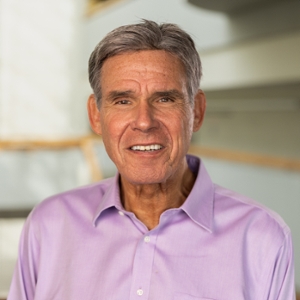Honorary Fellows of the International Medical Association
Honorary Fellows of the International Medical Association (IMA) are highly respected individuals recognized for their exceptional contributions to the field of medicine and healthcare. As distinguished members of the IMA, these Honorary Fellows play a vital role in shaping global health standards and advancing medical practices worldwide.
Their contributions span across various domains, including clinical innovation, medical education, public health policy, biomedical research, and healthcare leadership. Through their tireless efforts, these individuals have significantly improved patient care, medical training, and public health outcomes, positively impacting communities around the globe.
Being appointed as an IMA Honorary Fellow represents a formal acknowledgment of an individual’s remarkable achievements and unwavering commitment to the advancement of medicine. This prestigious recognition reflects the Fellow’s transformative influence on healthcare systems and their dedication to promoting excellence, ethics, and equity in global health.
The IMA Board is proud to announce the appointment of the following outstanding individuals as our Honorary Fellows:
Shinya Yamanaka is a Japanese stem cell researcher and the director of the Center for iPS Cell Research and Application at Kyoto University. He is renowned for his discovery of induced pluripotent stem cells (iPSCs), a finding that revolutionized regenerative medicine. Yamanaka was awarded the Nobel Prize in Physiology or Medicine in 2012 for this discovery.
Tedros Adhanom Ghebreyesus is the current Director-General of the World Health Organization (WHO). Under his leadership, the WHO has focused on global health challenges such as the COVID-19 pandemic. He has been influential in health policy, disease prevention, and advocating for universal health coverage worldwide.
Margaret Chan is a former Director-General of the World Health Organization (WHO), serving from 2007 to 2017. She played a key role in global health initiatives such as the response to the H1N1 influenza outbreak and the Ebola virus epidemic. Chan is widely recognized for her advocacy for public health in developing countries.
Peter J. Hotez is an American physician and researcher in tropical medicine, known for his work on neglected tropical diseases. He is the co-director of the Texas Children’s Hospital Center for Vaccine Development. Hotez has been a prominent advocate for vaccine development and global health equity, particularly in the fight against parasitic diseases.
Salim S. Abdool Karim is a South African physician and epidemiologist who has made significant contributions to HIV/AIDS research. He is the director of the Centre for the AIDS Programme of Research in South Africa (CAPRISA). Karim has been instrumental in developing antiretroviral therapies and has received numerous accolades for his work on HIV prevention.
Soumya Swaminathan is an Indian pediatrician and the Chief Scientist at the World Health Organization. She is recognized for her research in the fields of tuberculosis and child health. Swaminathan has been pivotal in global health initiatives, particularly in strengthening health systems and fighting tuberculosis and other infectious diseases.

Eric Topol is an American cardiologist and digital medicine expert, currently serving as the founder and director of the Scripps Research Translational Institute. Topol is known for his work in personalized medicine and the use of digital health technologies. His contributions have significantly advanced the integration of AI and digital tools in healthcare.
Anthony Stephen Fauci, MD , is an American physician–scientist and immunologist. He served as Director of the National Institute of Allergy and Infectious Diseases (NIAID) from 1984 to 2022 and was Chief Medical Advisor to the U.S. president from 2021 to 2022 . Fauci led pioneering work on HIV/AIDS and guided responses to Ebola, SARS, Zika, and COVID‑19. He’s one of the most cited scientists, has authored over 1,300 peer-reviewed articles, and received numerous honors including the Presidential Medal of Freedom and the Lasker Award
Harald zur Hausen is a German virologist best known for his discovery of the link between human papillomavirus (HPV) and cervical cancer. Currently, he continues his work in the field of oncology and virology. He was awarded the Nobel Prize in Physiology or Medicine in 2008 for his groundbreaking research on HPV.
Françoise Barré-Sinoussi is a French virologist who was a corecipient, with Luc Montagnier and Harald zur Hausen, of the 2008 Nobel Prize for Physiology or Medicine. She and Montagnier shared half the prize for their work in identifying the human immunodeficiency virus (HIV), the cause of acquired immunodeficiency syndrome (AIDS).
